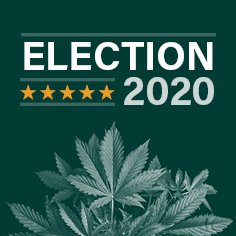2oz 3oz 4oz UV Protection Smell Proof Child Resistant Magnifying Glass Jar
Wide Mouth Glass Bottle Container Smell Proof Child Resistant Glass Jars with Magnifying Lids
Wide Mouth Glass Bottle Container Smell Proof Child Resistant Glass Jars with Magnifying Lids
Child resistant plastic tube 1. This tube just has two fixed sizes. 2. We can customized colors, logos, labels and so on. 3. It's squeeze Pop Top cap. And tubes can be used to package.
Product Display Product detail Product introduction UV Protection and Longevity: these roller bottles for oils are made from robust and thick glass coupled with stainless steel for roller balls and caps, ensuring longevity; The material ensures the bottles remain well protected against shocks or impacts, proper for long term use; And the bottles can protect against UV rays which are harmful to essential oils. Compact Size for Portability: with a size of approximately 10ml, these glass roller bottles for oils offer convenience for carrying around; This portable size means you can easily place these bottles in your purse, pocket, or handbag, making it an ideal choice when traveling, for office use, or even in the home. Versatile Usage: these perfume roller bottles are versatile and suitable for different applications; Use them to store diluted essential oils, perfume oils, blends, or other liquids. They're proper to satisfy your daily skincare needs, from the face to your body; Whether a...
Herb Tin Can The tin can be sealed at home with only your hands! After the ring has been pulled, they can then be re-sealed with the plastic cap, to keep your product fresh! Available with black, clear, or white plastic lid caps. Wholesale options available. Stores up to 100ml/3.5gram (1/8oz)of products. Diameter: 73mm (2.9 inches), Height: 23mm (0.9 inch). One set includes : 1 x Silver tin (stores up to 100ml/3.5g of product) 1 x Bottom Base Cover 1 x Black or Clear Plastic Lid Self sealing - No tools required, just push & Ring in the bottom. Designed to hand seal your Flower Bud to keep them safe and fresh. Ideal for dry foods, consumer products, laboratories, field work, and packaging novelty items. (Flower Buds, Dry Flowers Dry food. Confectionary. Nuts. Confetti. Socks. Limited edition products.) Sample delivery Wholesale options available. For large orders, and for shipments, please contact us for a custom quote. If need Self Seal Tin Cans, please give us your delivery ...
 2020-10-17
2020-10-17
Federal marijuana legalization could be only months from becoming reality, spurring Washington DC-based MJ advocates to seriously consider a “post-prohibition” world as they map out political strategies for 2021.
Several DC-based nonprofits and trade associations predict a bill to federally legalize marijuana could pass Congress in the near future – but only if Democrat Joe Biden wins the White House and his party controls the Senate and the House of Representatives.
If that occurs – and it’s not a sure bet – the move could become a game changer for the national marijuana industry.
It would simultaneously:
How it could play out
Meyer, a former staffer in the office of Kentucky Republican U.S. Sen. Rand Paul, predicted the Marijuana Opportunity Reinvestment and Expungement (MORE) Act “would be the primary vehicle” if the Democrats do take the White House and the Senate, in part because it’s already teed up in the House this year.
While legalizing marijuana federally by removing the plant from the federal Controlled Substances Act, the MORE Act would allow states to continue to choose how to regulate a commercial MJ industry.

But many questions remain, and much could change depending on the election.
If, for instance, Republicans retain control of the Senate or the White House, then the fallback plan for many groups is to focus on piecemeal bills such as the Secure And Fair Enforcement (SAFE) Banking Act.
That legislation would enable financial institutions to serve cannabis-related businesses without fear of federal punishment.
But should Democrats win big on Election Day, the next question – after the presumed passage of the MORE Act or legislation close to it – would become the regulatory framework.
But, Meyer added, a solution already exists.
GACC issued a 66-page draft of a bill that “ends cannabis prohibition and creates an all-encompassing regulatory framework” that:
The National Cannabis Industry Association (NCIA) issued a 48-page white paper touting a similar approach, arguing that a “‘one-size-fits all’ regulatory framework would be ineffective.”
 Online service
Online service +86 15375471059
+86 15375471059 [email protected]
[email protected] allanshi0520
allanshi0520 +8615375471059
+8615375471059